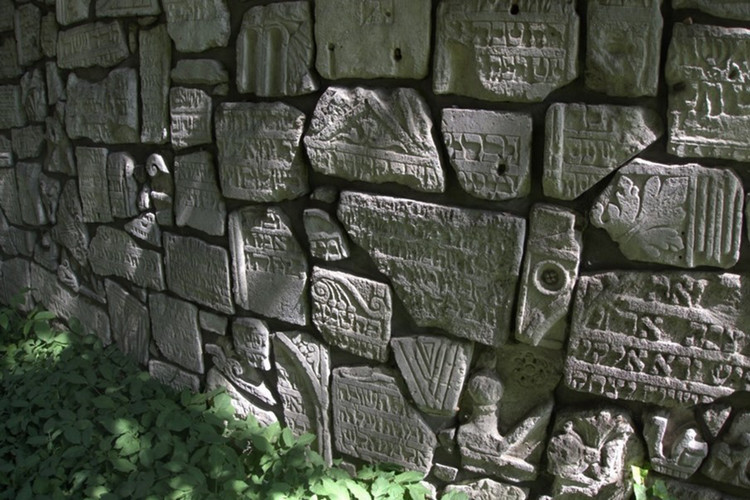Journey to Poland: A Student’s Perspective (2024)

This post is by Carol Wininger, a rising Emory sophomore double majoring in Economics and Philosophy, Politics, and Law. In her free time, she enjoys riding with Emory Equestrian.
My grandma Jean passed me a ninety-year-old Haggadah. I look over at the passport in her hand which her mother used to leave Austria, stamped with a red J. This conversation began after I shared my experiences from my recent trip to Krakow and Warsaw through the Tam Institute of Jewish Studies.
I always felt studying Jewish literature is often like looking into an abyss. Since I began researching my heritage in middle school, many topics have been impossible to swallow. For me, the greatest takeaway from this trip is that though it is important to explore the past, particularly genocides and what contributed to them occurring, it is equally as important to not define these populations solely by their trauma.
Our trip opened with a meeting with Professor Gawron, who taught Jewish Studies at Jagiellonian University. We discussed a piece by Janusz Korczak, a child rights activist, who wrote about how he was perceived as a Polish Jew. Here was my first glimpse into Jewish existence before the War started and how Jews were seen as others far before any physical violence was committed. Our later visit to the Jewish Historical Institute illustrated Jews’ fight against erasure while they were being persecuted. The core exhibition was an homage to the Oneg Shabbat group, who hid testimonies and documents in milk pails and buried them to be unearthed after the War was over, ultimately creating the Warsaw Ghetto archive.
The trip evoked a wide range of emotions. One day, I was admiring the results of Jews’ efforts to fight for and protect their heritage. The next day, I stood on the grounds of Auschwitz and Birkenau, on top of the crushed bones of those who died there, wondering how I could even begin to grasp this suffering.
I cannot deny that hate still metastasizes in many places across the world. I saw this with my own eyes as our guide, Kaja, explained a burn mark on the outside of the Nozyk synagogue, which was caused by a teenager aiming a Molotov cocktail through a window into the synagogue’s library. I felt discouraged that a young person that will only grow into more self-sufficiency and power purposefully attempted the destruction of information, a tactic the Nazis similarly used during the war to wholly erase populations.
The only way I found to begin recovering from these experiences was a perspective shift: Jewish life flourished before the Holocaust and though genocide has certainly changed its path, Judaism certainly thrives today. The bright culture and history of Judaism are so often overshadowed by Holocaust literature and thus completely overlooked. I felt this particularly during our visit to the POLIN museum. I learned about how Jews first arrived in Poland through the writings of the merchant Ibrahim ibn Yakub. I observed the tenuous relationship between Poles and Jews, through how rulers created safe spaces for Jews by eliminating blood libel accusations, just for others to ban Jewish publications decades later. This supplemented my understanding of the Holocaust; I did not truly understand the extent of what was lost until I learned what existed prior.
I particularly leaned into my new mindset during our Shabbat dinner at JCC Krakow. Over a hundred people crowded in a mid-sized room together; clearly, some were meeting each other for the first time, hinted by the constant exchange of names, birthplaces, and careers. Yet, as dozens of strangers sang Shalom Aleichem and put their arms across one another's shoulders, I could not help but feel a sense of familiarity and acceptance among all the people in the room.
It is difficult to capture how impactful this experience was for me. I understood how personal it is to live on the land where your own were massacred, and how respecting surviving Judaism is also a way of solidarity and remembrance. Since arriving home from Poland, I’ve put more effort into learning about my family history as far back as anyone remembers and approaching my family’s religious traditions with a more curious mentality. I am deeply thankful for Professor Goldstein, Paul, Kaja, friends I met on the trip, and the Tam Institute for their impeccable planning and support.
Published 7/22/24